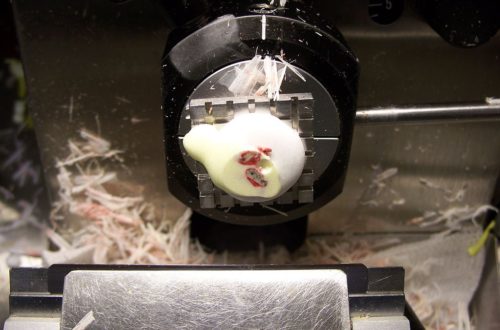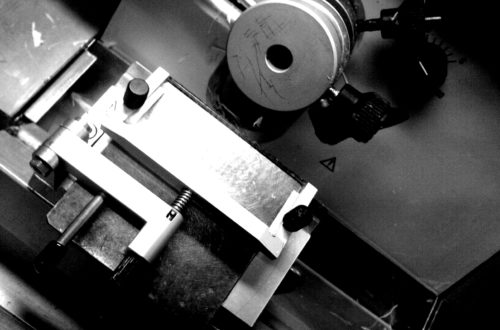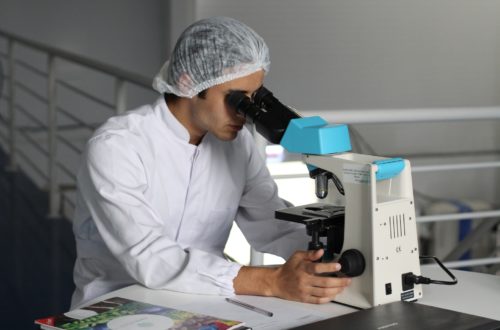
Useful Books for First Year Anatomical Pathology Residency
As a specialty, pathology requires a lot of studying and reading. To be able to clinch a diagnosis based on gross and microscopic anatomy of a specimen, a pathologist must certainly be familiar with the clinical presentation of a disease and its management. But more than that, the pathologist should be knowledgeable about the molecular and cellular mechanisms underlying the disease process and also be able to recognize the resultant changes in tissue architecture.
While my background in molecular biology and medicine provides me with the appreciation of the beauty in synthesis—how the threads of life weave together—there is much that I have to learn in pathology. Trying to learn as much as I can, from molecular patterns to cellular morphology to tissue architecture, even while keeping the patient and clinical scenario in mind, will undoubtedly be challenging.
As residents, we weren’t advised to buy any particular book except for Robbins’ Pathologic Basis of Disease, as the exam questions later in residency will be coming from this textbook. In addition, the library in our residents’ offices are well-stocked, and the McGill online library has the latest editions of digital textbooks. I, however, very much prefer the comfort of having my own books to write on and highlight, so I obtained a few books that I thought will be helpful for my first year.
1. Robbins’ Pathologic Basis of Disease (2020, ISBN13: 978-0323531139)
Newly released this year, I couldn’t get it quickly enough from Amazon sellers, but I was able to obtain one discounted from the US Elsevier website. I dimly remember falling asleep whenever I read Robbins’ in medical school, way back in 2010. However, be it due to maturity or just a better understanding of medicine in general, reading it now isn’t too bad. Our program seniors have recommended that we read the first ten chapters to have a better foundation of disease processes. I am also wondering if I should start making myself flashcards that I can use to review in the future.
2. Diagnostic Pathology: Normal Histology by Lindberg et al. (2018, ISBN13: 978-0323548038)
I enjoy reading this book because it gives me a concise summary of basic histology and common artifacts seen in microscopic specimens. The pictures are also clear and demonstrative, with arrows pointing to specific structures and the legends well-annotated.
3. The Practice of Surgical Pathology: A Beginner’s Guide to the Diagnostic Process by Molavi (2008, ISBN13: 978-1489989222)
This book is a good introduction as to how to approach a pathology case. It has the basics of using the microscope, descriptive terms in anatomic pathology, and even a chapter on what to watch out for in certain organs that are of limited educational value. It’s a book that should be read in first year residency, alongside normal histology and a review of pathophysiology.
4. Manual of Surgical Pathology by Lester (2010, ISBN-13: 978-0323065160)
My first week in residency after orientation is going to be spent in the grossing laboratory, handling “simple” specimens. This book gives me great step-by-step method on how to gross specimen depending on the clinical diagnosis (e.g. neoplastic versus non-neoplastic lesions). It is certainly something different being there on the bench, actually trying to orient the specimen and attempting to cut it properly and evenly. Still, I don’t know what I would have done if I didn’t read the chapters in this book before putting my laboratory coat on and heading for grossing.
I know I’m only in my first month of residency, but these books have been useful and helpful as I get my feet wet in this specialty. I usually begin by reading the grossing manual, review normal histology and pathophysiology, and then skim over the diagnostic approach. There is another book on gross pathology that I’ve found in the resident library, which has been good as an overview.
I’m certain I will be using different books once I enter the autopsy room and as I move through the rotations. It’s amazing how much there is to learn and explore in pathology! I enjoy reading books, although books are simply the first step before I run towards the slides and microscopes.
How about you? Do you have any books you recommend for pathology?





2 Comments
Abduelelah
Thank you very much! I am starting my pathology residency on October and I’ve asked around whether should I start reading early or not and been receiving different opinions but what would you advise? and how should I approach the begining of my residency?
Dr. Jade Marie Tomaszewski
Congratulations! You must feel excited and just a bit nervous before starting!
Whether or not you read early depends on some factors, such as on your study style! Some prefer to take this time to completely relax and go on a trip, and some like to prepare. It also depends on your residency curriculum and how long your program is. Where I am, first year residency is the time to get used to pathology, so I relaxed before starting my program and used my first year to study introductory and review texts. In some programs, residents are thrown into hot water immediately, so it may be advisable to read in advance. Finally, it depends on how well you know your medicine, especially histology and Robbins pathology. I suggest, if you are not comfortable with your knowledge base, to browse through and review these subjects before residency starts. Otherwise, you can simply do a quick review of histology and Robbins pathology (the pocket companion will suffice for review) before each subspecialty rotation.
I hope I’ve answered your question!